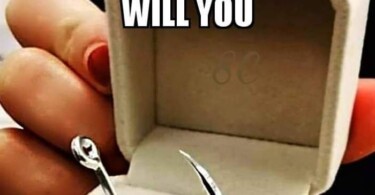If something’s hard to do, then it’s not worth doing.
This quote perfectly captures Homer Simpson’s blend of laziness and flawed logic. Instead of encouraging perseverance, it flips the lesson on its head. Rather than pushing through challenges, Homer suggests that difficulty itself is a red flag—not a sign of value, but of something to avoid entirely. This anti-motivational take is both hilarious and revealing. It speaks to a mindset many might jokingly relate to, where instant gratification trumps long-term effort. Beneath the humor lies a subtle critique of modern impatience and aversion to effort. In true Homer fashion, the quote dismisses hard work as unnecessary, celebrating ease and convenience. It’s a satirical reflection of a world where shortcuts are often preferred, even if they lead nowhere.
I want to share something with you, the three little sentences that will get you through life. Number One: ‘Cover for me.’ Number Two: ‘Oh, good idea, boss!’ Number Three: ‘It was like that when I got here.
“Cover for me,” “Oh, good idea, boss!” and “It was like that when I got here.”—these three phrases represent a survival kit for workplace mediocrity. Homer isn’t giving professional advice in the traditional sense. Instead, he’s laying out a playbook for dodging responsibility, sucking up, and deflecting blame. It’s a funny, cynical take on the kind of behavior that can (unfortunately) sometimes pass for competence in certain office cultures. Rather than integrity or effort, Homer’s path to success relies on charm and a loose relationship with the truth. It’s absurd, yes—but it resonates because it mirrors real workplace shortcuts many have witnessed. The humor lies in its raw honesty: sometimes, it feels like this is exactly how people get ahead.
I have three kids and no money. Why can’t I have no kids and three money?
Here, Homer encapsulates the tension between family responsibilities and financial stress. The joke plays on the classic adult struggle—raising children costs money, and it often feels like a trade-off. Homer’s phrasing is as childlike as it is funny, as he seems to misunderstand how life and finances work. But under the joke is a genuine sentiment: parenting is expensive, and sometimes people dream of simpler, less stressful alternatives. This quote plays with the absurdity of trying to swap one major life factor for another, as if money and kids are directly interchangeable. It’s a light-hearted exaggeration of parental fatigue and the longing for financial freedom, all wrapped in Homer’s charming cluelessness.
Two wrongs make a right, Lisa.
This quote twists the old moral saying, “Two wrongs don’t make a right.” Homer offers his daughter a backwards version of wisdom, suggesting that piling mistakes on top of each other somehow results in a good outcome. It’s intentionally flawed logic—comical because it’s wrong and delivered with confidence. The moment reflects how Homer, despite his love for his kids, often gives advice that misses the mark entirely. Yet there’s something endearing in his effort to connect, even when he gets the message hilariously wrong. The quote is a reminder of how misinformation can be passed along casually, and how, in sitcom logic, terrible advice can still lead to heartfelt moments.
Kids, You Tried Your Best and You Failed Miserably. The Lesson Is: Never Try
This is one of Homer’s most brutally funny quotes. It’s the ultimate anti-inspirational message. Where most parents would use failure as a teaching moment, Homer uses it to justify giving up entirely. The quote flips the script on perseverance and resilience, replacing them with hopelessness and surrender. It’s a darkly comic take on how failure feels in the moment—devastating enough to make giving up seem like a good idea. In a way, it also satirizes overly competitive or perfectionist attitudes, where anything less than success feels like total failure. Homer’s logic is flawed, but that’s what makes it relatable. Sometimes, when nothing works out, this kind of exaggerated defeatism is the laugh we need.
I Hope You Learned Your Lesson, Lisa: Never Help Anyone
Here, Homer takes a rare teaching moment and completely derails it. Instead of encouraging empathy or altruism, he draws the opposite conclusion: helping others only brings trouble. It’s a sharp jab at how good deeds can sometimes backfire—and how some people use those rare moments to justify total selfishness. Homer’s advice is, of course, misguided and selfish, but it also captures the frustration people feel when kindness isn’t rewarded. As always, the humor comes from Homer’s ability to turn simple wisdom into twisted logic. The quote reflects his protective, if clueless, instincts as a father, trying to shield Lisa from hurt by encouraging cynicism.
It’s Not Easy to Juggle a Pregnant Wife and a Troubled Child, But Somehow I Managed to Fit in Eight Hours of TV a Day
This quote is peak Homer: self-centered, out of touch, but somehow oddly impressive in his laziness. He lists real life challenges—supporting a pregnant wife and caring for a child—but the punchline is that he still prioritizes watching television. It’s a satire of how people often claim to be overwhelmed, yet somehow still make time for their favorite distractions. Homer’s version of “juggling responsibilities” is pure escapism. He doesn’t rise to the occasion; he avoids it. The humor lies in the absurd imbalance between what he should be doing and what he chooses to do instead. It’s a comment on how people cope—or fail to cope—with stress and responsibility.
Lisa, If You Don’t Like Your Job, You Don’t Strike. You Just Go In Every Day and Do It Really Half-Assed. That’s the American Way!
Homer’s take on work culture is as cynical as it is funny. Instead of supporting Lisa’s frustration with injustice, he advises passive resistance—doing the bare minimum. His message mocks the idea of meaningful protest or change. It’s a jab at workplace apathy and the normalization of disengagement. “That’s the American way” adds a layer of satire, poking fun at the idea that this kind of checked-out attitude is not just common, but expected. While the quote is funny, it also reflects a deeper truth about burnout and disillusionment. Homer might be wrong, but he’s echoing a feeling that many overworked people know too well.
Kids Are the Best. You Can Teach Them to Hate the Things You Hate, and They Practically Raise Themselves, What, With the Internet and All
In this quote, Homer praises parenting for all the wrong reasons. Instead of focusing on love or growth, he sees kids as little sponges for his opinions—and convenient because the internet can keep them busy. It’s an absurd yet honest exaggeration of hands-off parenting. Homer’s joy comes not from guiding or nurturing, but from passing down his biases and having free time. The humor works because it highlights real concerns—like screen time and inherited prejudices—through Homer’s lazy worldview. It’s a darkly funny reminder that parenting isn’t just about presence; it’s about influence, whether intentional or not.
No Matter How Good You Are at Something, There’s Always About a Million People Better Than You
Unlike most of Homer’s quotes, this one hits with a dose of humility. It sounds pessimistic, but there’s some real-world truth to it. In a world obsessed with being “the best,” Homer reminds us—perhaps unintentionally—that being good doesn’t always mean being exceptional. It can feel discouraging, but also freeing. You don’t have to be number one to enjoy what you do. While the tone is typically defeatist, the quote actually undercuts the pressure to compete constantly. It’s a funny, grounded look at self-awareness from someone not usually known for it. Whether he means to or not, Homer teaches a lesson here: focus on the joy of doing, not the rank of it.




